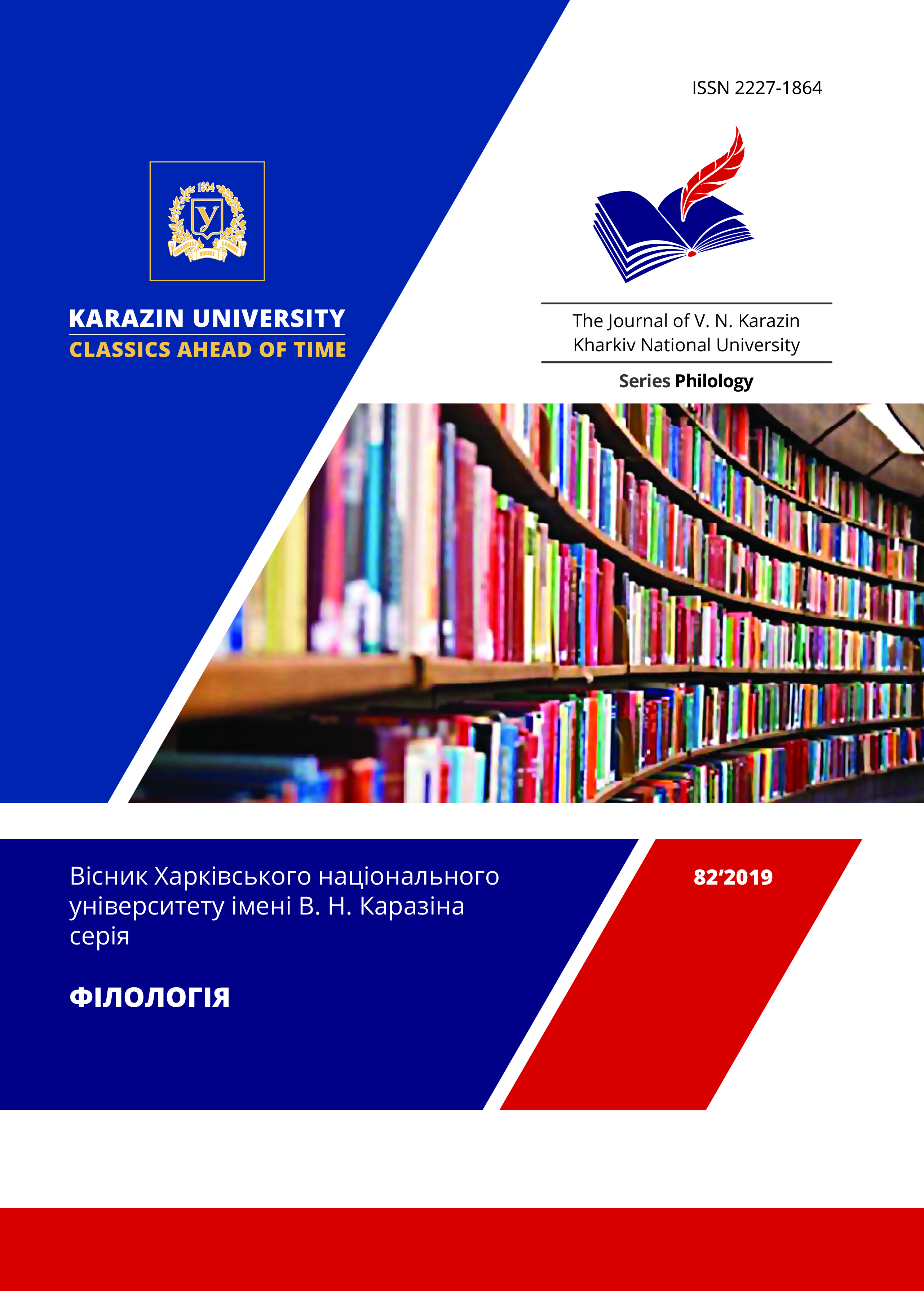“The poor knight lived in the world ...” A. Pushkin in the life-creation and philosophy of love of D. Merezhkovsky
Abstract
The article is devoted to the consideration of the reception of the A. Pushkin's poem “The poor knight lived in the world ...” in the D. Merezhkovsky’s life-creation and religious-philosophical concept of love. The image of the “poor knight” has become an integral part of the literary life of the writers in the symbolist circle, as evidenced by the studies of A. Lavrov, O. Matich, L. Sproge, M. Tsimborskaya-Leboda and others. He owes his popularity by F. Dostoevsky’s novel “Idiot”, where he acts as a kind of projection of the image of Prince Myshkin, as indicated by Merezhkovsky. With the image of the “poor knight” he associates all “chaste” literary heroes (Hippolytus, Myshkin) and writers (Chaadaev, Lermontov (in a certain period)), who have a platonic feeling for a secret lover. Merezhkovsky does not differentiate the editions of Pushkin’s poem (“Legend” and “Franz's Song” from “Scenes from Knightly Times”), since he is a man of ideas, in the framework of which the “poor knight” becomes the basis of his idealistic concept of platonic love, the bearer of pure feelings, and symbol of the ideal sweetheart, he defines A.M.D. As a result of the study, we determined that the unconventional interpretation of the abbreviation as Alma Mater Dei dates back to Merezhkovsky to the early medieval Catholic name of Our Lady, which converted to Christianity from Roman paganism, where it denoted mother goddesses. This fact in many respects determined the appearance of his neo-Christian concept of the sanctified Mother-Spirit flesh in the “Kingdom of the Third Testament”.
The writer's frequent appeal at different periods of his work to the “The poor knight lived in the world ...” Pushkin, its original interpretation and commentary, as well as life practice, allowed us to define the image of the “poor knight” as a psycho-typological model of Merezhkovsky’s “life scenario”. The subject of further research will be the reception of Pushkin’s poem in the work of Z. Gippius, who also at different times refers to the image of the “poor knight” and acts as a co-author of her husband’s idea, but implements them in her own individual way.
Downloads
References
Andrushchenko E. (2012). Vlastelin «chuzhogo». Tekstologiya i problemy poetiki D.S. Merezhkovskogo. Moskva: Vodoley. [in Russian].
Belyy•A. (1994). Simvolizm kak miroponimaniye. Moskva: Respublika. [in Russian].
Blavatskaya E. P. (2018). Razoblachennaya Izida. S kommentariyami. Vol. 2. Moskva: Eksmo. Retrieved from https://www.litmir.me/br/?b=605118&p=53 [in Russian].
Blavatskayay E. P. (1996). Terra inkognita. Sbornik. Moskva: Sfera. [in Russian]
Blok A. (1978). Pis’ma k zhene. Literaturnoye nasledstvo, Vol.89. Moskva: Nauka. [in Russian].
Bondi S. (1937). Stikhi o bednom rytsare. Izvestiyaan SSSR. № 2– 3. 659–677. [in Russian].
Gippiusz. N. (2003) Sobraniye sochineniy. Moskva: Russkaya kniga. Vol 7. [in Russian].
Dushenko K. & Bagrinovskiy G. (2013) Bol’shoy slovar’ latinskikh tsitat i vyrazheniy. Moskva: Eksmo. [in Russian].
Polovinkina S. M. (ed) (2005) Zapiski peterburgskikh Religiozno-filosofskikh sobraniy (1901 – 1903). Moskva: Respublika. [in Russian].
Lavrov A. V. (2015) Simvolisty i drugiye: Stat’i. Razyskaniya. Publikatsii. Moskva: Novoye literaturnoye obozreniye. [in Russian].
Matich O. (2008) Eroticheskaya utopiya. Novoye religioznoye soznaniye i fin de siecle v Rossii = Erotic Utopia: The Decadent Imagination Russia's Fin de Siecle. Moskva: NLO. [in Russian].
Merezhkovskiy D. (2009) O novom znachenii drevney tragedii (Vstupitel’noye slovo k predstavleniyu "Ippolita"). Eskhil. Sofokl. Yevripid. Tragedii. Sbornik. Perevod s grecheskogo Dmitriya Merezhkovskogo. Moskva: Lomonosov. 465–472. [in Russian].
Merezhkovskiy D. (2016) Tayna Zapada. Atlantida – Yevropa. Mul'timediynoye Izdatel Strel'bitskogo. [in Russian].
Merezhkovskiy D. S. (1991) Akropol': Izbrannyye literaturno-kriticheskiye stat’i. Moskva: Knizhnaya palata. [in Russian].
Merezhkovskiy D. S. (2000) Lev Tolstoy i Dostoyevskiy. Moskva: Nauka. [in Russian].
Pedchenko E. (2017). Philosophy of love in prose of Zinaida Gippius and Dmitry Merezhkovsky. "International Humanitarian University Herald. Philology”. № 31. Vol. 1. 81 84. [in Russian].
Pedchenko O. V. (2018). The Goddess of love in the prose by Dmitry Merezhkovsky. Transcarpathian Philology Studios. № 5. Vol. 1. 26–30. [in Ukrainian].
Sproge L. V. (1986) Motiv «rytsarya bednogo» v poezii simvolistov. (Organizatsiya khudozhestvennogo yedinstva knigi stikhov Ellisa «Argo»). Pushkin i russkaya literatura. Riga. LGU. 102 109. [in Russian].
Frank L.S. (1987) Etyudy o Pushkine. Paris: YMSA-PRESS. [in Russian].
Tsimborska-Leboda M. (2018), «Rytsar' bednyy» ili «Strannik po pustynyam (ne)bytiya»? Andrey Belyy, Vyach. Ivanov i Nikolay Berdyayev o Merezhskovskom. D.S. Merezhkovskiy: pisatel' – kritik – myslitel'. Moskva, Litfakt. 360–383 [in Russian].
Treasury of Latin Prayers est. April, MCMXCVIII by Michael Martin. copyright 2018. Retrieved from http://www.preces-latinae.org/thesaurus/BVM/AveMarisStella.html




